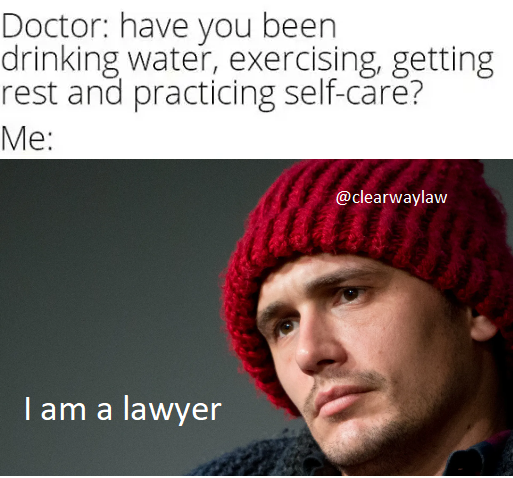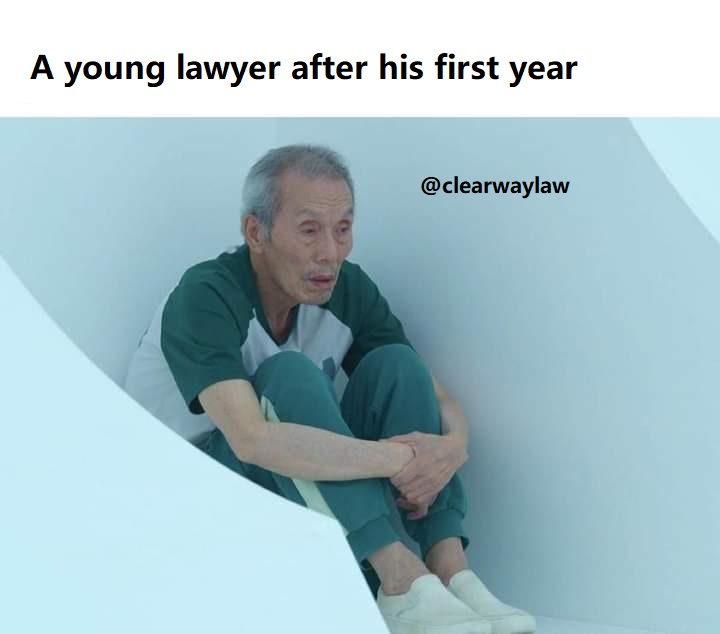When diving into the realm of family law guardianship in BC, it’s essential to view it as more than just the law. It is a space where emotions, ethics, human relationships, and, ultimately, the well-being of a child intertwines with legal principles and regulations.
British Columbia’s Family Law Act sets out the framework for determining who can become a guardian and the responsibilities that come with this role.
A guardian, at its core, is a person who has the legal rights and responsibilities to care for a child. This concept is not about “ownership” of a child but about “stewardship”, focusing on the child’s best interests.
We suggest talking to a family law coach, which is often cheaper than talking to a lawyer.

Navigating Family Law Guardianship in British Columbia
A child’s biological parents are the legal guardians unless the law states otherwise. However, there may be circumstances where it’s necessary for someone other than the parents to take on this role.
If the parents are incapable due to illness or death, or if the child’s safety and well-being are at risk, a different guardian may be appointed. It’s also possible for a non-parent to become a guardian if they live with the child and are regularly involved in their care.
What makes BC’s law unique is its emphasis on the ‘best interests of the child’, a guiding principle which sits at the core of all decisions around guardianship.
This concept includes considerations like the child’s health and emotional well-being, their views, the nature of their relationships, and their need for stability, among others. It’s not about what the parents or guardians want but about what is best for the child, a sentiment that resonates throughout the process.
Parental responsibilities involve decision-making
Guardians have parental responsibilities and parenting time in BC, which was formerly known as custody and access. Parental responsibilities involve decision-making about significant aspects of a child’s life such as education, health care, and cultural, linguistic, and religious upbringing.
Parenting time, on the other hand, refers to the time a child spends with a guardian, irrespective of the specific activities they undertake during that time.
While the default assumption is that each parent shares all parental responsibilities, the courts can, and will, order otherwise if it’s in the child’s best interest.
It’s about what suits the child, not the parent. The court’s overriding principle will always be ensuring the welfare and security of the child.
Becoming a guardian isn’t simply about stepping forward. Prospective guardians, if not the biological parents, must apply to the court, demonstrating their suitability and commitment. This can be a complex process, involving various forms, affidavits, and possibly even a hearing.
Clear and convincing evidence
The would-be guardian must provide clear and convincing evidence that they are the best person to fulfill this critical role, always keeping the child’s best interests at the forefront.
Once a guardian is appointed, their duties continue until the child turns 19, the age of majority in BC. However, certain conditions might alter this, such as if the child becomes self-sufficient earlier, or if the child has special needs that necessitate continued guardianship into adulthood. The role is both significant and extensive, affecting every aspect of the child’s life and future.
Navigating the complex landscape of family law and guardianship in BC can be a challenging task. It calls for more than just an understanding of the legal provisions.
It requires an appreciation for the balance that must be struck between the law’s dictates and the unique circumstances of each child and family.
This intricate dance, of weaving together the threads of law, relationship, and the child’s best interests, is what makes family law guardianship in BC a captivating and essential area to understand.
What powers do guardians have?
At the heart of guardianship is the responsibility to make decisions. From everyday decisions, such as what the child should eat for breakfast, to life-altering ones, such as choosing the best school, a guardian is entrusted with this enormous task.
One key power that a guardian has is the legal right to make decisions regarding the child’s upbringing and personal matters. They play a significant role in determining the child’s education, religious instruction, and overall well-being.
In British Columbia, a guardian has another substantial power – managing the child’s property and financial affairs. For instance, if a child inherits property, the guardian will manage that property on the child’s behalf until they come of age.
This could include making investment decisions or deciding on the property’s maintenance. But, it’s crucial to remember that the guardian is legally bound to exercise these powers diligently and in the child’s best interest.
The medical sphere is another area where a guardian in BC has significant influence. They have the power to consent to medical treatments for the child.

Might require court approval
This power is not absolute and is subject to the health professional’s discretion and the child’s wishes, particularly as they grow older. The guiding light in such situations is always in the best interest of the child, a principle that serves as the North Star for every guardian navigating the complex terrain of guardianship.
A guardian also has the power to determine the child’s place of residence. Whether it’s choosing to live in bustling Vancouver or the tranquil shores of Victoria, the guardian can decide where the child lives. They may even decide to move the child out of the province, though this might require court approval in certain circumstances.
Now, let’s not forget about guardians appointed for adults who are incapable of managing themselves or their affairs. A guardian for an adult, also known as a “committee” in BC, holds similar powers.
They make personal, medical, and financial decisions, always prioritizing the adult’s best interests, personal values, and beliefs. Sometimes, a committee might even have the power to make a will for the adult, subject to the court’s approval.
With great power comes great accountability
Yet, with great power comes great accountability. The law ensures a balance by subjecting the guardian’s decisions to periodic review and imposing stringent duties.
The guardian must always be transparent about their actions, maintain records, and be prepared to account for their decisions if called upon.
Ultimately, being a guardian in British Columbia isn’t about the power one has, but rather about how one uses that power. It’s about creating an environment where a child or an incapable adult can thrive.
It’s about making the difficult decisions that they can’t make and guiding them as they navigate life’s uncertainties. You need to be their protector, their advocate, and their guiding star in the vast universe of life’s possibilities.
The role of a guardian is as multifaceted as the very concept of guardianship itself. From caring for personal well-being to managing financial affairs, a guardian’s power paints a comprehensive picture.
While the legal system of British Columbia empowers a guardian with various responsibilities and rights, it also constantly reminds them that their powers are not for personal gain, but for the welfare of those under their care.
And in this delicate balance of power and care lies the true essence of guardianship in BC.
Are there guardianship laws?
Family law related to guardianship in BC is primarily governed by two statutes, the Family Law Act and the Child, Family and Community Service Act. Numerous cases have also contributed to the understanding and interpretation of these laws.
The Family Law Act, enacted in 2013, establishes the legal basis for guardianship, parenting responsibilities, and parenting time. Under the FLA, a guardian is responsible for making important decisions about a child’s upbringing and well-being, including health care, education, and religious instruction, among others.
Family Law Act BC
Section 39 of the FLA states that while both parents are generally considered guardians of a child born within a marriage, this is not automatically the case for unmarried parents.
For unmarried parents, the father is not automatically a guardian unless he has lived with the mother during the child’s first year, regularly cares for the child, or has a signed agreement or court order saying he is a guardian.
This is a significant change from the previous legislation where unmarried fathers had to apply to court to be recognized as guardians.
The CFCSA is another essential statute that pertains to guardianship in BC. It is primarily focused on the protection of children and grants the Director of Child, Family and Community Services the authority to remove children from unsafe situations.
If a child is removed from parental care under this act, the Director may be temporarily appointed as the child’s guardian, typically until a longer-term solution can be found.

Child, Family and Community Service Act
Case law further refines the application of these statutes. The courts interpret and apply these laws in a manner consistent with the overarching principle of ensuring the best interests of the child, a principle enshrined in Section 37 of the FLA.
One key BC case is “Hodgins v. Hodgins, 2014 BCSC 656”. This case provided clarity on the rights and responsibilities of guardians and emphasized the importance of the child’s best interest. The court held that it could not automatically assign equal parenting responsibilities to both parents if it was not in the child’s best interest.
The landscape of family law in BC
Another influential case is “JP v. British Columbia, 2015 BCCA 5”. The BC Court of Appeal in this case dealt with the interpretation of the CFCSA. The court held that a child’s views must be considered when determining their best interests in child protection cases. This ruling gives voice to children’s perspectives in proceedings under the CFCSA.
While these statutes and cases provide a comprehensive framework for family law guardianship in BC, it is critical to note that the landscape of family law continues to evolve. Legal practitioners and parents must stay current with changing laws and court interpretations to ensure children’s best interests are always protected.
BC Family Law: Essentials of Guardianship You Need to Know
The guardian’s role, in its most basic sense, is akin to that of a steward, a caretaker whose primary task is to ensure the well-being and development of the individual under their guardianship.
This responsibility typically applies to children who are under the legal age or adults who are unable to manage their affairs due to a variety of factors such as illness, disability, or cognitive impairment.
In the province of BC, the Family Law Act details the roles and responsibilities of a guardian. The law emphasizes that the guardian’s paramount responsibility is to ensure the best interest of the child.
This includes ensuring the child’s physical, emotional, and psychological safety and well-being. The guardian also makes decisions pertaining to the child’s upbringing, such as education, healthcare, and religious guidance.
Who becomes a guardian?
But who becomes a guardian? By default, a parent is a child’s guardian. However, certain circumstances may necessitate the appointment of a non-parental guardian.
These could include the untimely demise of the parent(s), their inability to provide adequate care or cases where the court deems it necessary to appoint another individual in the child’s best interests. The chosen individual could be a relative, a close family friend, or even a foster parent assigned by the state.
There are two types of guardians in BC: a guardian of the person and a guardian of property. The guardian of the person is responsible for the daily care and decisions affecting the child’s life.
On the other hand, a guardian of property manages the child’s assets and financial affairs. Sometimes, one person fulfills both roles, but these responsibilities can also be divided between two individuals.
Guardianship is in the child’s best interest
Becoming a guardian in BC requires a legal process, especially for non-parental guardianship. The applicant must demonstrate to the court that the guardianship is in the child’s best interest.
The process involves submitting an application and participating in a hearing, after which the court makes its decision based on all the presented evidence.
In cases where the person requiring a guardian is an adult, Adult Guardianship laws come into play. A guardian can be appointed for an adult incapable of managing their personal care or financial matters due to cognitive impairment, mental health issues, or physical disability.
Family law guardianship in BC
The guardian then makes decisions on their behalf, always prioritizing the adult’s best interests.
Guardianship is a profound responsibility. A guardian, whether of a minor or an adult, must make choices that can significantly impact the individual’s life. It’s a role that demands immense understanding, compassion, and patience.
The laws of British Columbia are explicit in defining these responsibilities and guiding guardians to ensure they fulfill their roles appropriately.
We hope you found this article on family law guardianship in BC useful.











